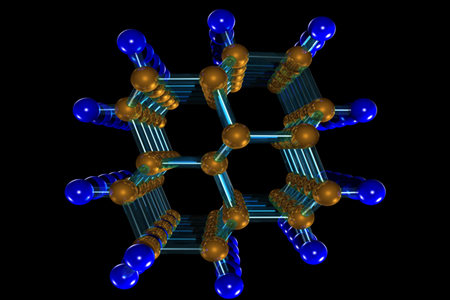
 |
Silicon based technology dominates the ongoing miniaturization of electronic components. For the past thirty years, Moore's law has characterized progress. However, Moore's law cannot hold indefinitely. There are serious scientific and technological issues that must be resolved as device features shrink to nanoscale dimensions where quantum mechanical effects become important. For example, design rules for transport based on simple Ohmic behavior and field-effect transistor digital function will become suspect as a consequence of quantum effects. The Institute for the Theory of Advanced Materials in Information Technology is dedicated to promoting research on understanding and predicting these effects in electronic materials. New materials other than silicon will be explored theoretically and computationally for the construction of electronic devices at small dimensions. The Institute aims to promote innovations in new materials and to advance research related to information technology. Representative research areas within the institute will include the study of organic and plastic semiconductors, low-k dielectrics, dilute magnetic semiconductors and spintronic devices, carbon nanotubes, and nanowires. Research activities will also include examining multiscale phenomena and developing high performance algorithms targeted at simulating and modeling the properties of advanced materials. |
Supported by:
 |
Institute for Computational Engineering and Sciences: The University of Texas at Austin |
 |
 |
 |